
Q I bought this key almost 20 years ago. I know it’s from the “Frisco,” but can anyone date it or explain the “S” stamp?— Rick Goodell, Etna, Maine A A plain “S,” like on the key shown, means it is a switch key. Early railroad switch padlocks and keys came in various styles, but […]
Read More…

Flagg Coal Co. No. 75 pays a visit to the offices of Kalmbach Publishing on August 16, 2011. The 0-4-0 tank engine was built by the Vulcan Iron Works in 1930. Now privately owned, it travels around the country to tourist railroads, and made a flag stop (ha ha) at Kalmbach, courtesy of owner John […]
Read More…
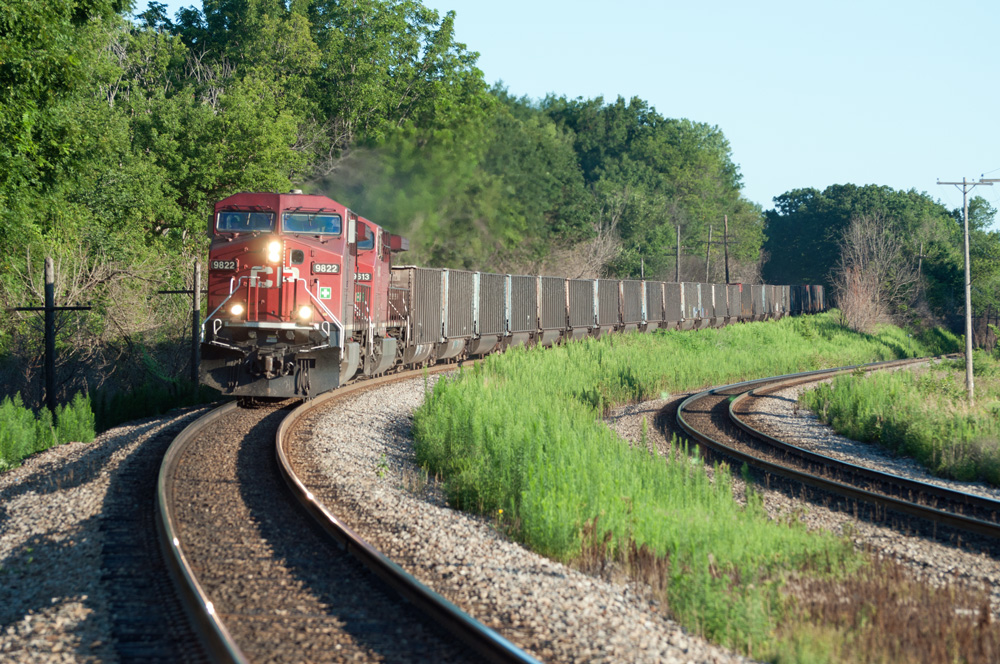
Two high-horsepower GE locomotives approach Elm Grove, Wis., with eastbound Canadian Pacific coke train 852. The train is descending the subcontinental divide. (Water west of the divide flows into the Mississippi River, while water east of the divide flows into Lake Michigan.) Photo by Matt Van Hattem […]
Read More…
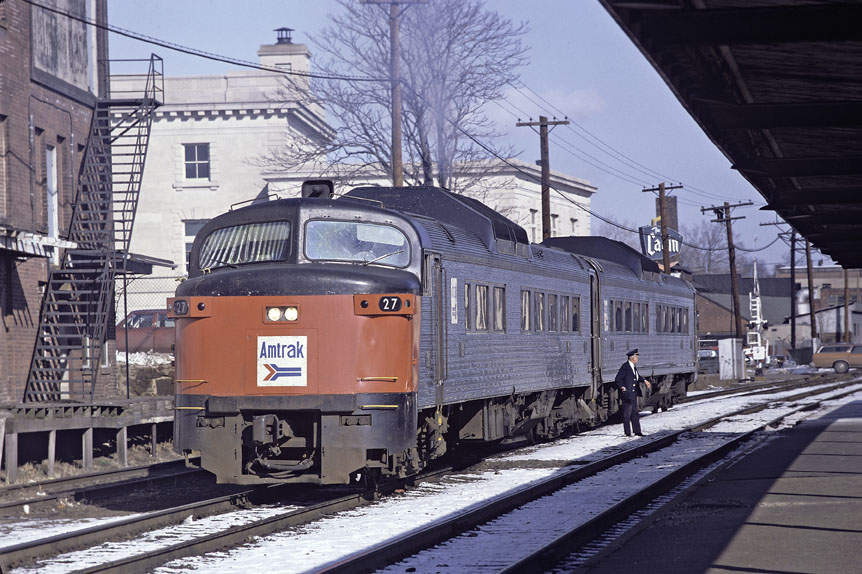
Amtrak inherited from Penn Central these self-propelled Rail Diesel Cars with distinctive front ends built for the New Haven Railroad’s Roger Williams. Budd Co. delivered six RDCs in an A-B-B-B-B-A formation to the New Haven in 1956. The slapped-on Amtrak logo from this February 1975 view would be replaced four years later with the company’s […]
Read More…
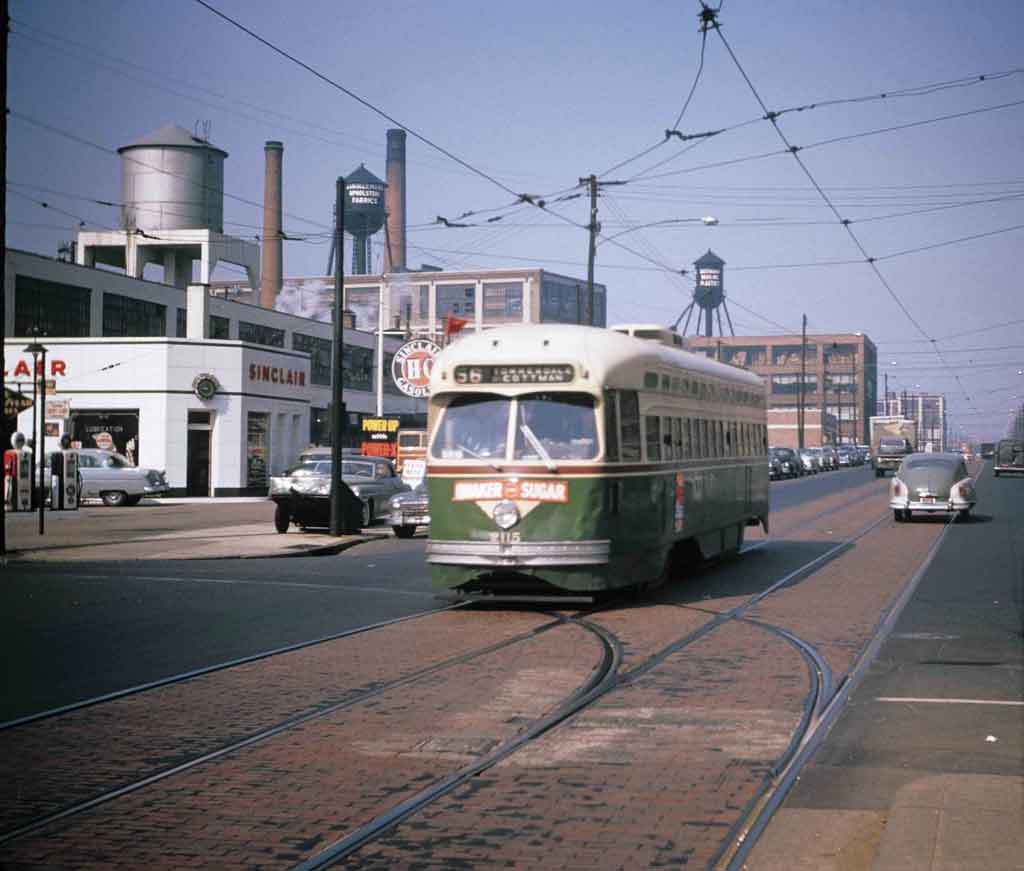
Philadelphia Transportation Co. PCC car 2115 cruises east on a Route 56 run along Erie Avenue in 1955. Mert Leet My dad worked as a trolley operator for the Philadelphia Transportation Company. Stationed at the 10th and Luzerne carbarn, he was one of a legion of veterans who found work on the PTC after World […]
Read More…
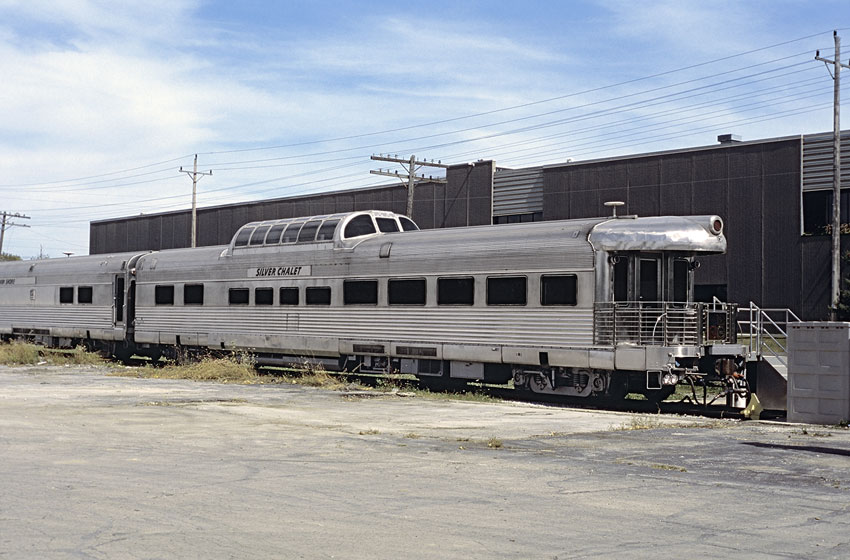
The Silver Chalet, once part of the Western Pacific’s California Zephyr, rests outside Quad/Graphics’ Sussex, Wis., printing plant Nov. 24, 2004. Cody Grivno Q I saw a private car named “Silver Chalet” at Union Station in Washington, D.C. It had an odd-looking observation platform. Can you tell me its history and who owns it now?— […]
Read More…
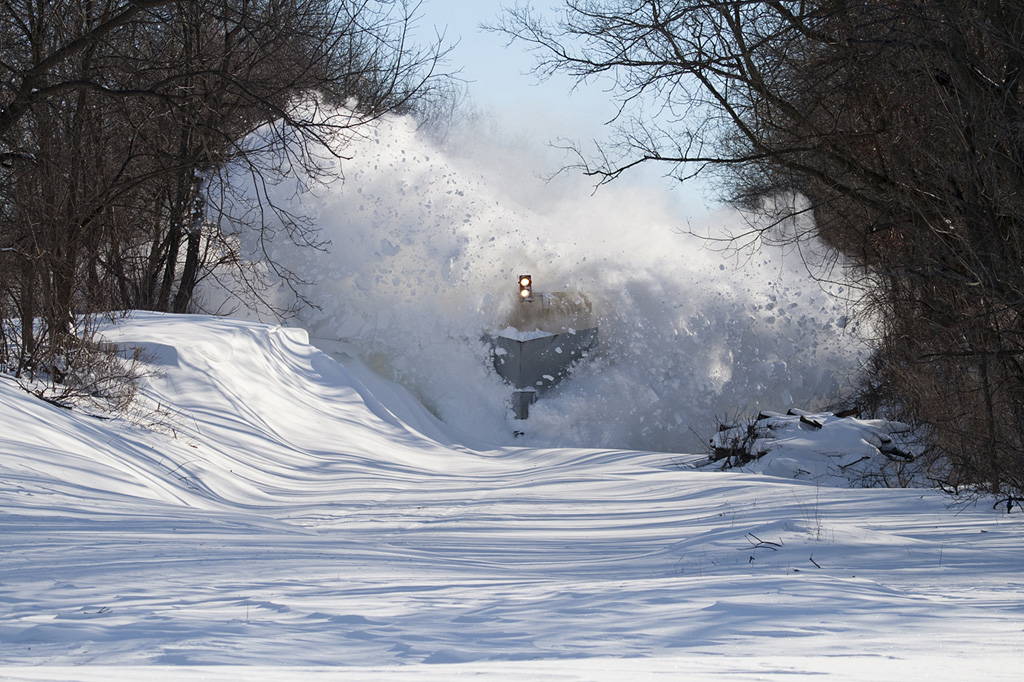
Wisconsin & Southern Jordan spreader WSOX 9 shatters a drift near Minnesota Junction, Wis., on Feb. 3, 2011. William R. Beecher Jr. William R. Beecher Jr. Fond du Lac, Wis. The snow stopped. The sun actually rose under glorious high pressure after two solid days of blizzard that left Central Wisconsin under almost 2 feet […]
Read More…
Read more about the Rock Island’s 1960s diesel menagerie in a PDF of the article “Christine and the Mongeese” by J. David Ingles, published in the December 1965 issue of TRAINS magazine. Rock Island Diesel Menagerie DOWNLOAD […]
Read More…
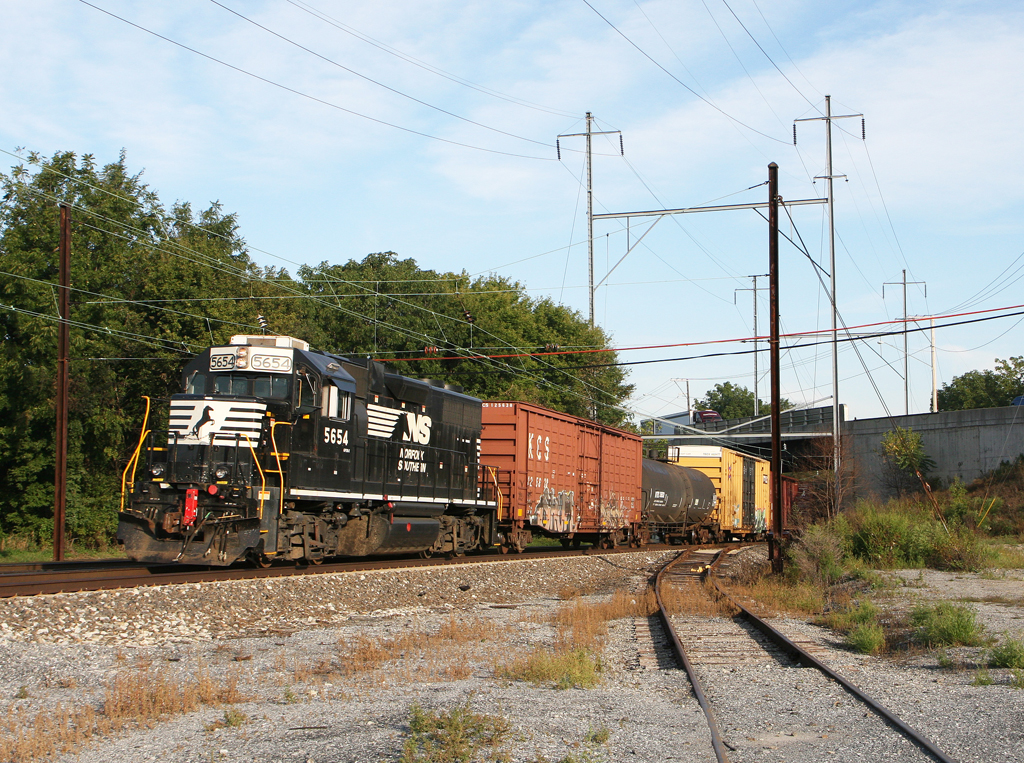
A Norfolk Southern local negotiates Amtrak’s Keystone Corridor main line at Leaman Place, Pa., on Aug. 31, 2011. Though the lion’s share of trains on this route are Amtrak trains operating between Philadelphia and Harrisburg, Pa., NS serves freight customers adjacent to the line as successor to Pennsylvania Railroad, the line’s longtime owner. Photo by […]
Read More…
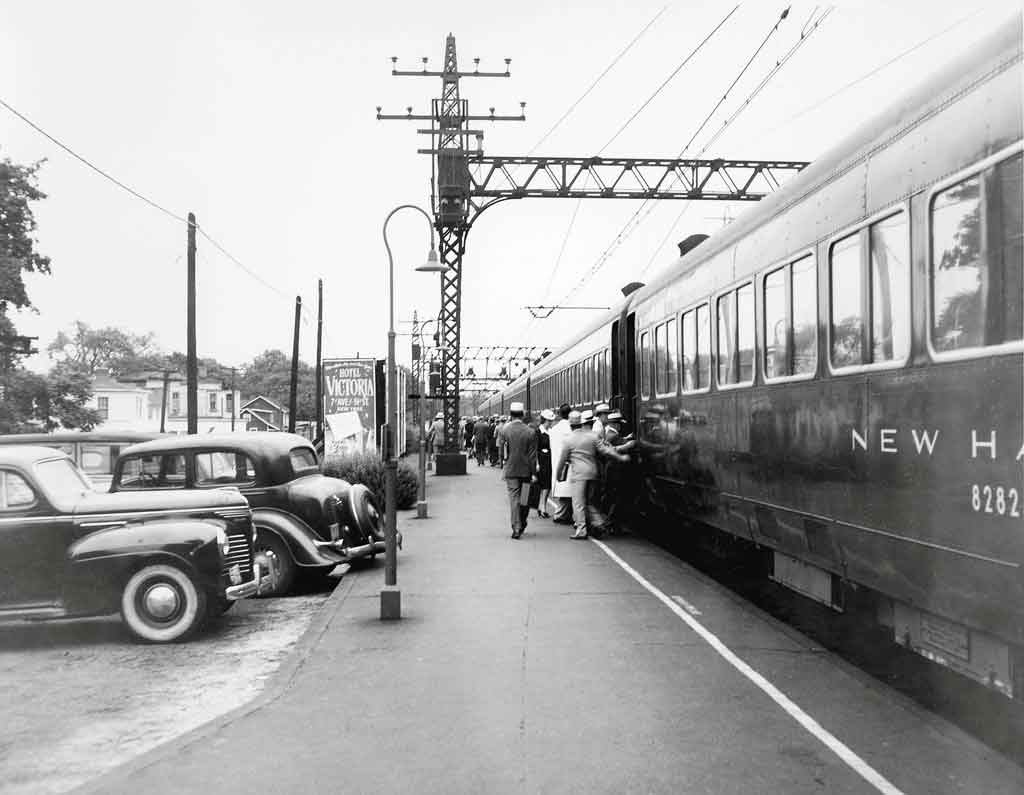
“Deluxe” cars like these on New Haven train 365 at Darien, Conn., in July 1947 were not what author Paradis experienced on his commuter-train rides. NH The distant rumble warned that the mighty New York Central steam locomotive with its 12 steel coaches would soon round the curve on the Harlem Division and bear down […]
Read More…
Q On which railroad was the 1975 movie “Breakheart Pass” filmed? — Klaus Schmidt, Sleepy Hollow, N.Y. A “Breakheart Pass” was filmed on the Camas Prairie Railroad, a short line in Northern Idaho. Originally a cooperative building effort by predecessors of the Union Pacific and the BNSF in the early 20th century, as of 2004, […]
Read More…
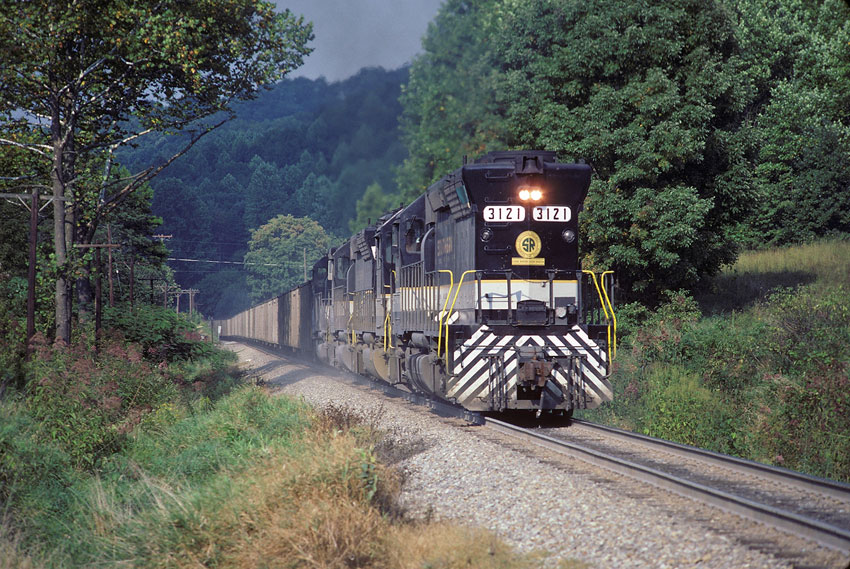
Southern Railway SD45 No. 3121 leads long hood forward on a unit coal train at Oreton, Va., in 1984. Such design enhanced bidirectional capability. Ron Flanary Q When did railroads such as the Norfolk & Western stop running their road engines “long hood first?” How effective was this practice for crew safety? Did it have […]
Read More…










